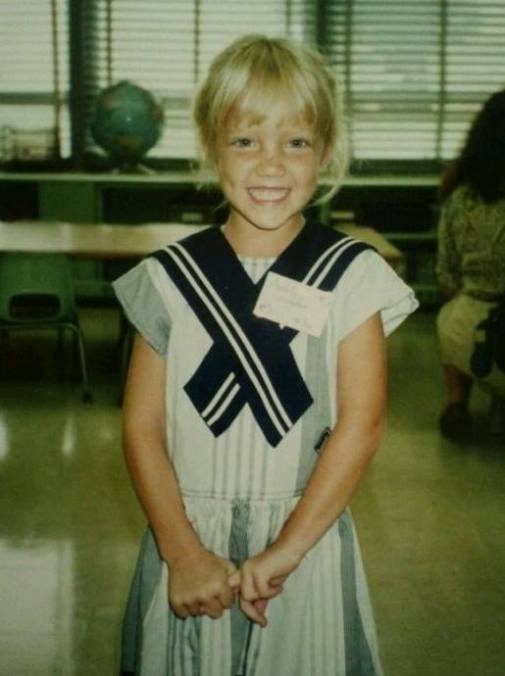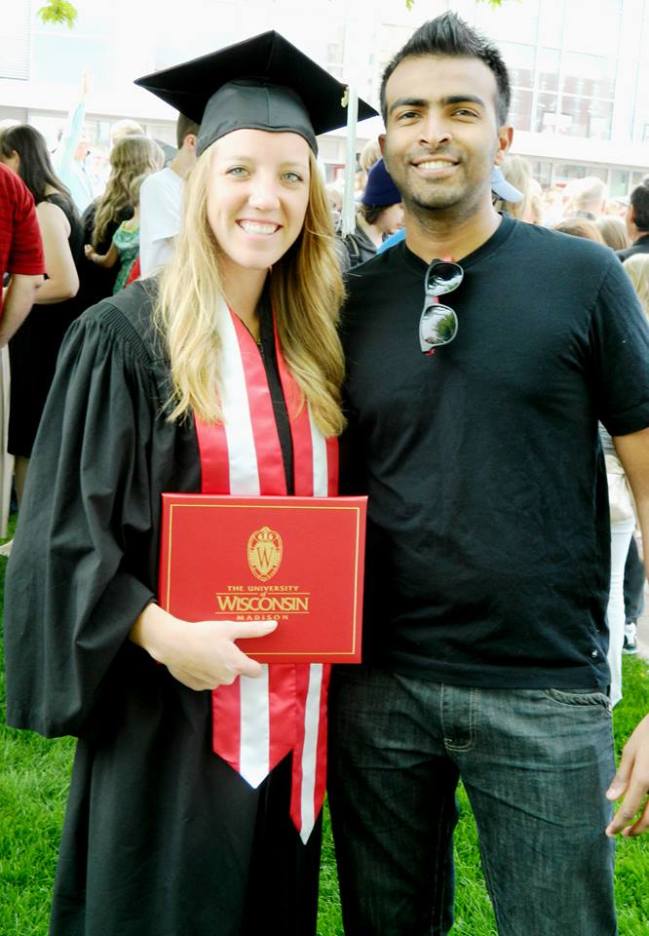It was nearly midnight when I realized that my lesson plan for the following day was not going to work. In fact, it was going to be a disaster. All week I had worked on what I thought were going to be the most successful 90 minutes of teaching yet; but there I lie in bed, unable to sleep, thinking that my students were going to look at me with dazed eyes of confusion as I told them what my plan was. It was Thursday night and nearly two hours after the usual time that I went to bed. Waking up at 5:30am would be as unpleasant as the day would be long.
So what made me second guess my ostensibly flawless plans? First, let me back up to Monday, four days earlier, where I sat clutching my new favorite book by Daniel Pink, “Drive: The Surprising Truth About What Motivates Us.” I turned page after page (figuratively, that is, because the Kindle has sadly killed the beloved paperback). Unable to put it down, I was inspired by his theory of intrinsic motivation stating that, “Human beings have an inherent tendency to seek out novelty and challenges, to extend and exercise their capacities, to explore, and to learn.”
Oppositely, if we teach through extrinsic rewards (“if-then” rewards) by offering a shiny new bike or colorful iPod at the next raffle drawing once they reach a certain level in Reading, students will ultimately learn LESS. But how can this be? We see that these systems often do work. The problem that comes into play, however, is how long they actually work and to what degree the students are motivated to learn over the span of a lifetime. By incentivizing a student to reach a target level in Math by offering a free coupon, she will undoubtedly work to accomplish that goal; but once she does, she will stop there. Goal setting stops, reading stops and learning stops until yet another bigger and better reward is offered.
To avoid such detrimental cycles, Pink encourages a self-guided approach in all areas of life, particularly in the work place, but also in student learning. “How creative a person feels when working on the project, is the strongest and most pervasive driver,” he argues. Therefore, teachers must give students the support they need and let them run with their creativity to accomplish their goals and pursue their interests. Succinctly stated, “Autonomous motivation promotes greater conceptual understanding; better grades, enhanced persistence at school, and in sporting activities, higher productivity, less burnout, and greater level of psychological well-being.”
There it was, let students do what they do, with a little guidance of course. Walla! I had an epiphany. I would give my students the space for creativity to do whatever inspired them at the end of class, with a little direction of course. The only requirement would be to create something relevant to the material learned, and it must be something useful (a poster, a news article, a song etc.) I had my presentation and my speech ready to get students fired up about learning and I was ready to be the best teacher I could be for my students.
But then it was midnight the night before and I couldn’t sleep. It made so much sense earlier that week and now it made no sense at all.
Here’s why: I finished Daniel Pink’s book on Wednesday and picked up another book on Thursday, “The Art of Choosing” by Sheena Iyengar, which would toss my brain into a fuddled mess, but only later. My morale was high as I read, “People with little control over their work… experienced more back pain, missed more days of work due to illness in general, and had higher rates of mental illness.” I remember thinking to myself, “Phew, I’m glad I’m avoiding that mess by offering my students unlimited choice and control over their learning!” The author continued, “…minor but frequent choice making can have a disproportionately large and positive impact on our perception of overall control.” I was on a real winning streak.
And then everything came apart at the seams as I rounded the corner and ran face first into her argument of Individualistic and Collectivist societies. “Ultimate happiness (in collectivist societies) comes not from making the choice but in the fulfillment of one’s duties.” In one study, a collectivist culture on average, “listed twice as many domains in which they did not want choice as compared to domains in which they did. They often wanted someone else to decide… Comparing responses between the two, Americans desired personal choice in four times as many domains of life…”
Culture! The difference in culture, hello!! How could I miss the single most important thing I have learned in my 11 months of service?? And there it was, on a comprehensive ranking system for a country’s level of collectivism, “South American countries tend to rank quite high.” And to squander any optimism I had left that my plan might work, her experiments in an elementary school showed that, “Anglo American children did better and worked longer when they were able to exercise personal choice. The moment anyone else told them what to do, their performance and subsequent motivation dropped dramatically. By comparison, the Asian American children performed best and were most motivated when they believed their mothers had chosen for them.”
My plan was in shambles. It was now midnight.
I couldn’t possibly walk into that classroom pretending to ignore this blatant evidence that my plan was going to flop. I had new knowledge, and I had a choice (and Americans love choice!) So rather than debunking my previous theory, I decided to perform a small psychological test on my students. Here’s what I did:
- I told my students that the last 20 minutes of class would be reserved for work time. Therefore, they wouldn’t have to worry about homework and they could turn in their assignment before they left (also so that I could see the results).
-
Each student received a slip of paper stating what they should work on. I told students not to confer with their classmates which assignment they were given (collectivist societies love direction!) since each person’s would be different
-
Half of the students were told to write a dialogue. They were given only one choice.
The other half of students were given three choices (to write a dialogue, a news article or to create a pamphlet). -
I randomly passed them out, alternating the two different papers to every other student, and watched them as they got to work. After the 20 minutes were up, I told students that they may leave if they felt they were finished or they could stay if they chose to work on their assignment longer. I recorded the times that each of their work was turned in.
Here’s what I found:
I analyzed their work in three different areas including number of mistakes, the time they chose to work on the assignment and the overall word count to measure the length of writing. The results came as predicted. On average, the students who were given only one option worked over two minutes longer than those given three options. When dividing the number of mistakes by the total word count, those who had only one option also had a more than 4% better accuracy rating than their counterparts. They tended to make fewer mistakes, therefore boosting their grades. Most impressive, the students who had three options wrote fewer than 100 words total, whereas their classmates with only one option wrote nearly 130 words on average.
As a stared at my Excel worksheet of data with my head on my hand, I couldn’t deny that Sheen Iyengar’s same findings were true. What I thought would be best for my students turned out to be one of the worst things that I could have done for them. The moment I tried to apply what I knew from my own experiences and my own culture, the effectiveness of my teaching took a plummet. Although it was with good intention, my failure to see a culture’s deeply rooted influences was potentially damaging. However, critical thinking saved what could have been a disastrous situation. I was faced with a problem that required investigation, planning, adjustment, re-planning, analysis and ultimately reflection; a lot of work but an even greater pay off to the benefits it will bring to my future in education, I’m sure. I share this with you not only because it was a very real learning point in my service, but also in hopes that it will inspire you to apply the same careful consideration to your own life for the sake of the people around you as well. We must not only be tolerant of other cultures, but also conscious of our actions.

 Time seems to pass by so slowly day to day but when I look back it’s like it all happened at once. I feel like I’ll wake up one day and know that two weeks went by, ten months, and then.. all of a sudden.. two years. But instead of worrying about where I’ll be and what I’ll have done in those months and years ahead, I’m learning to practice the presence. I’m here today, and eventually tomorrow I’ll be there, wherever that may be.
Time seems to pass by so slowly day to day but when I look back it’s like it all happened at once. I feel like I’ll wake up one day and know that two weeks went by, ten months, and then.. all of a sudden.. two years. But instead of worrying about where I’ll be and what I’ll have done in those months and years ahead, I’m learning to practice the presence. I’m here today, and eventually tomorrow I’ll be there, wherever that may be.
